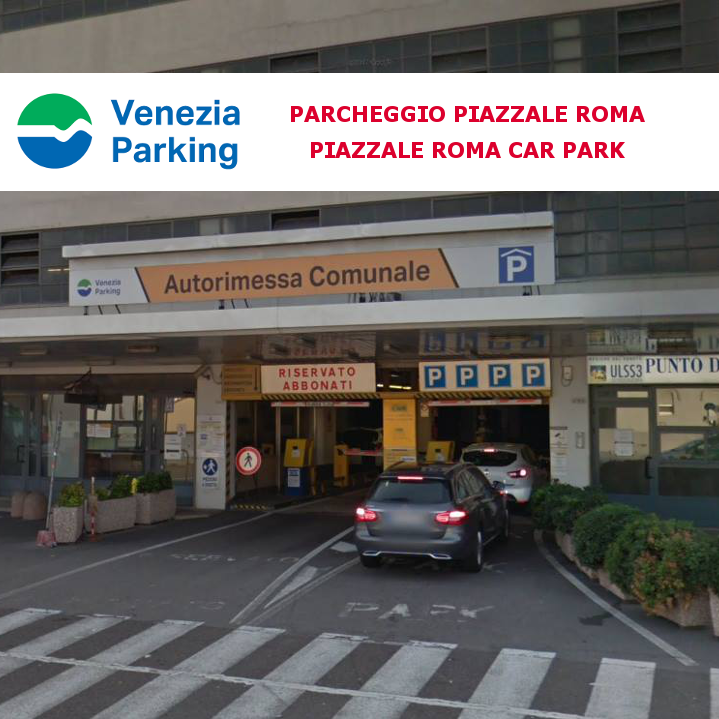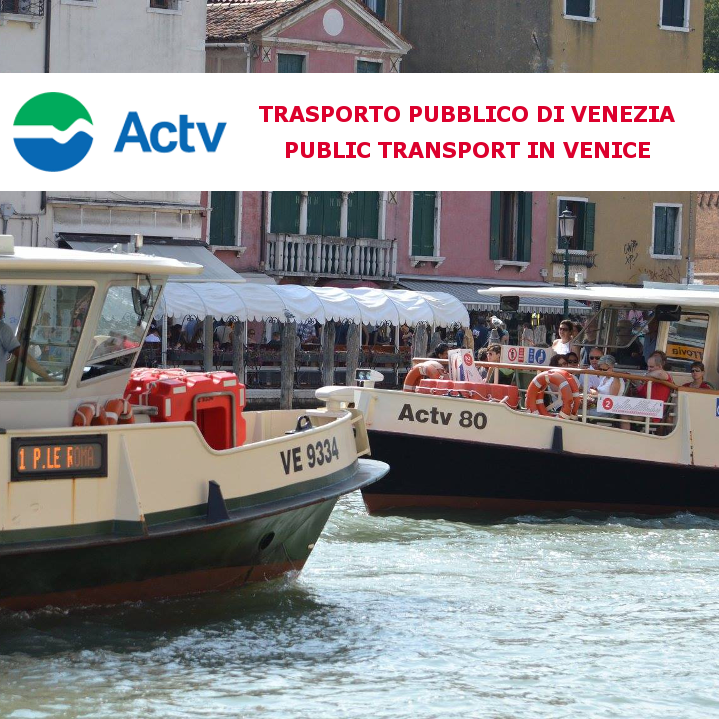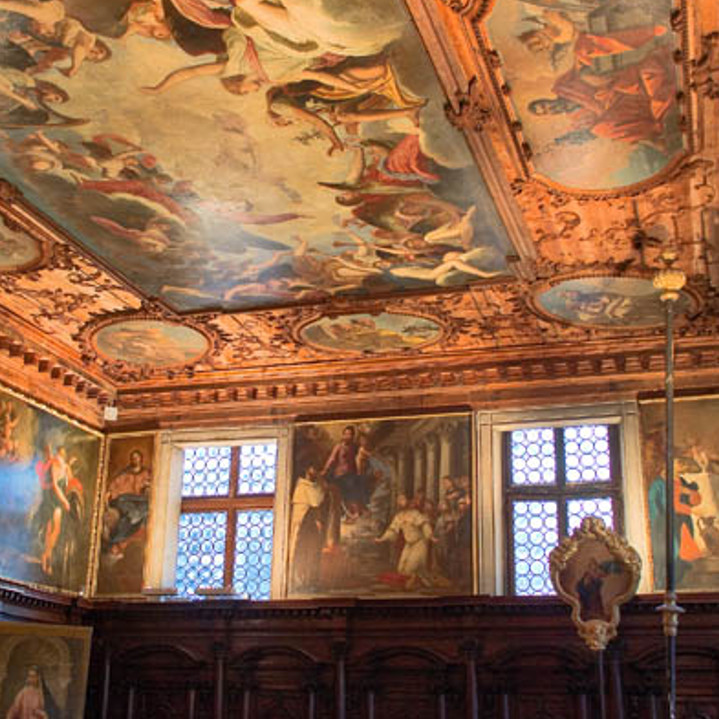You are here
Sustainable Venice
Sustainable Venice
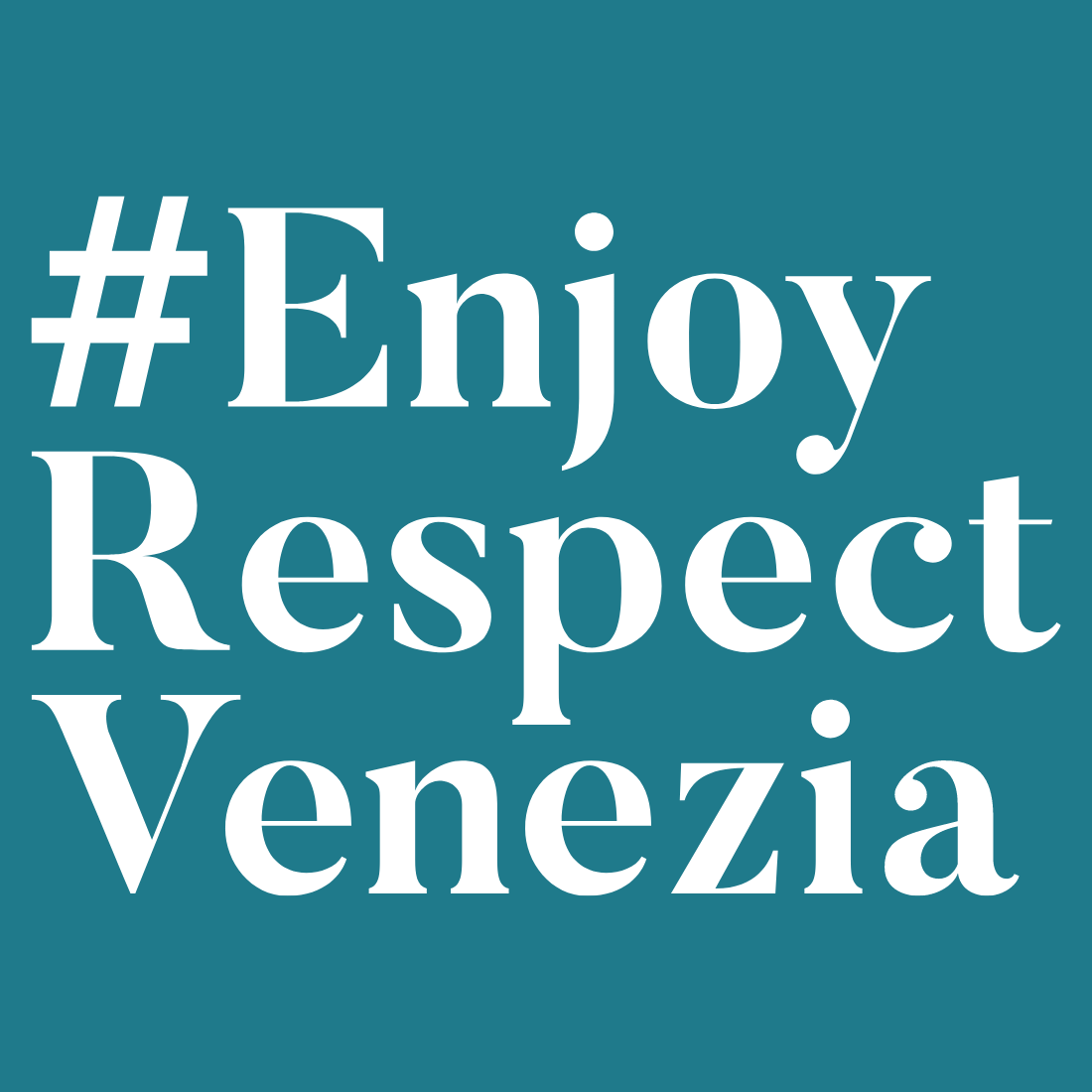
Venice is the only city of its type in the world and a UNESCO World Heritage Site representing a cultural and natural asset of exceptional value, demanding its preservation and transmission to future generations.
A sustainable tourism - not altering the natural and artistic environment, and not obstructing the development of other social and economic activities in harmony with the daily life of residents - is necessary to preserve the extraordinary beauty and uniqueness of Venice.
#EnjoyRespectVenezia is the City of Venice's awareness campaign launched during the International Year of Sustainable Tourism for Development (2017) and designed to direct visitors towards the adoption of responsible and respectful behaviour towards the environment, landscape, artistic beauties and identity of Venice and its inhabitants.
The objective is to raise awareness of tourist impact, with the belief that responsible travelling can contribute to sustainable development.
12 good rules for the responsible visitor make up a sort of handbook sharing tips and advice on how to become a more aware and respectful traveller towards Venice's landscape, environment, artistic beauties and identity.
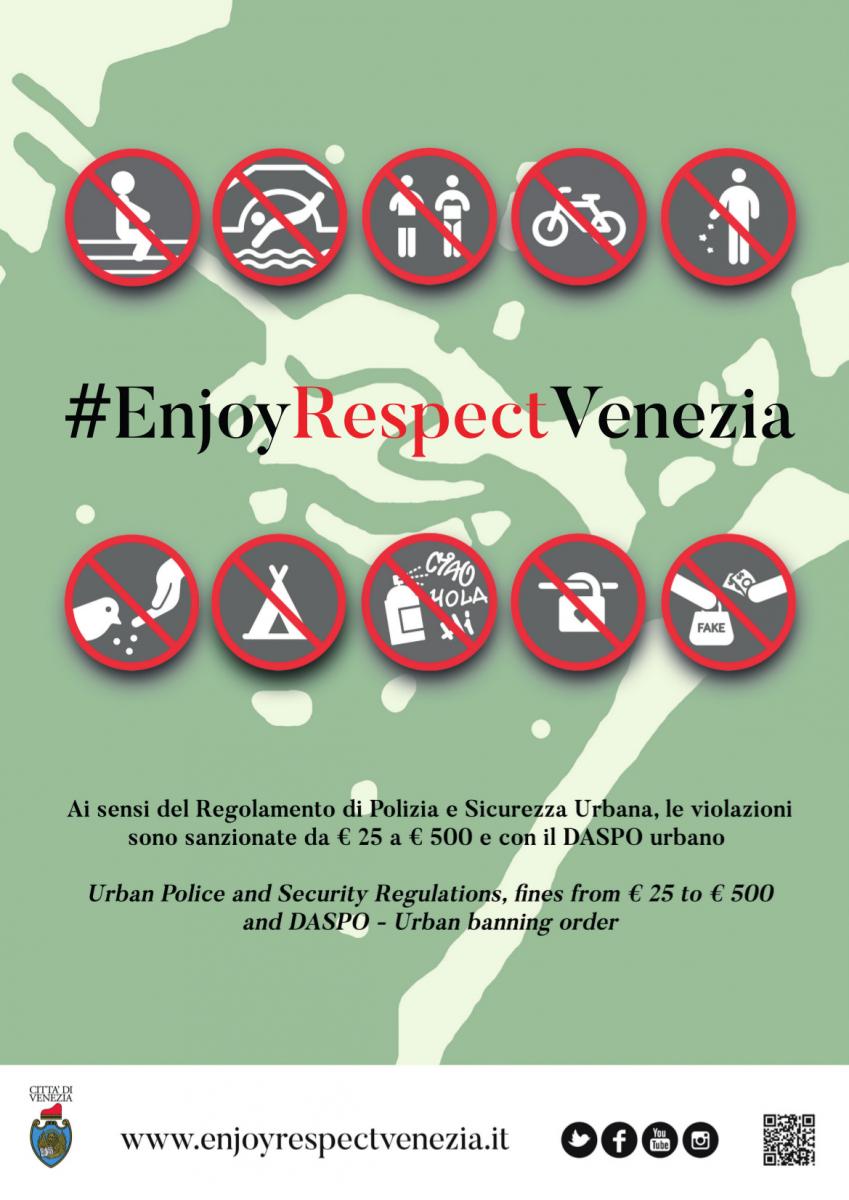
- 1. Discover the hidden treasures of Venice in the least visited places to appreciate Venice’s exceptional beauty.
- 2. Explore the islands in the lagoon and Mainland Venice, participate in events spread throughout the Metropolitan City.
- 3. Taste the local products and typical Venetian cuisine.
- 4. Visit the artisans' workshops and learn about the ancient trades that still exist today in Venice. Choose only original products and do not buy any goods from illegal vendors.
- 5. Book tours with qualified tourist guides able to recount Venice's thousand-year-old history.
- 6. Walk on the right, do not stand at any time on bridges, do not even lead bikes by hand.
- 7. Steps of churches, bridges, wells, monuments and banks of streams, canals etc. are not picnic areas. Please use the public gardens for this necessity. Consult the map.
- 8. St. Mark's Square is a monumental site and excluding pertinent bars and restaurants, it is forbidden to stand at any time in order to consume food or drink.
- 9. Venice is a city of art: it is forbidden to camp, walk about in swimwear, dive and swim. The beaches at Lido and Pellestrina can be easily reached.
- 10. Respect the environment and artistic wealth: do not litter, do not vandalize with graffiti, or padlocks. Do not give food to the pigeons.
- 11. If you are staying in an apartment or flat, please get informed about the garbage recycling collection.
-
12. Plan your trip and choose to visit Venice when it is less crowded. Find out more about Venice entry fee.
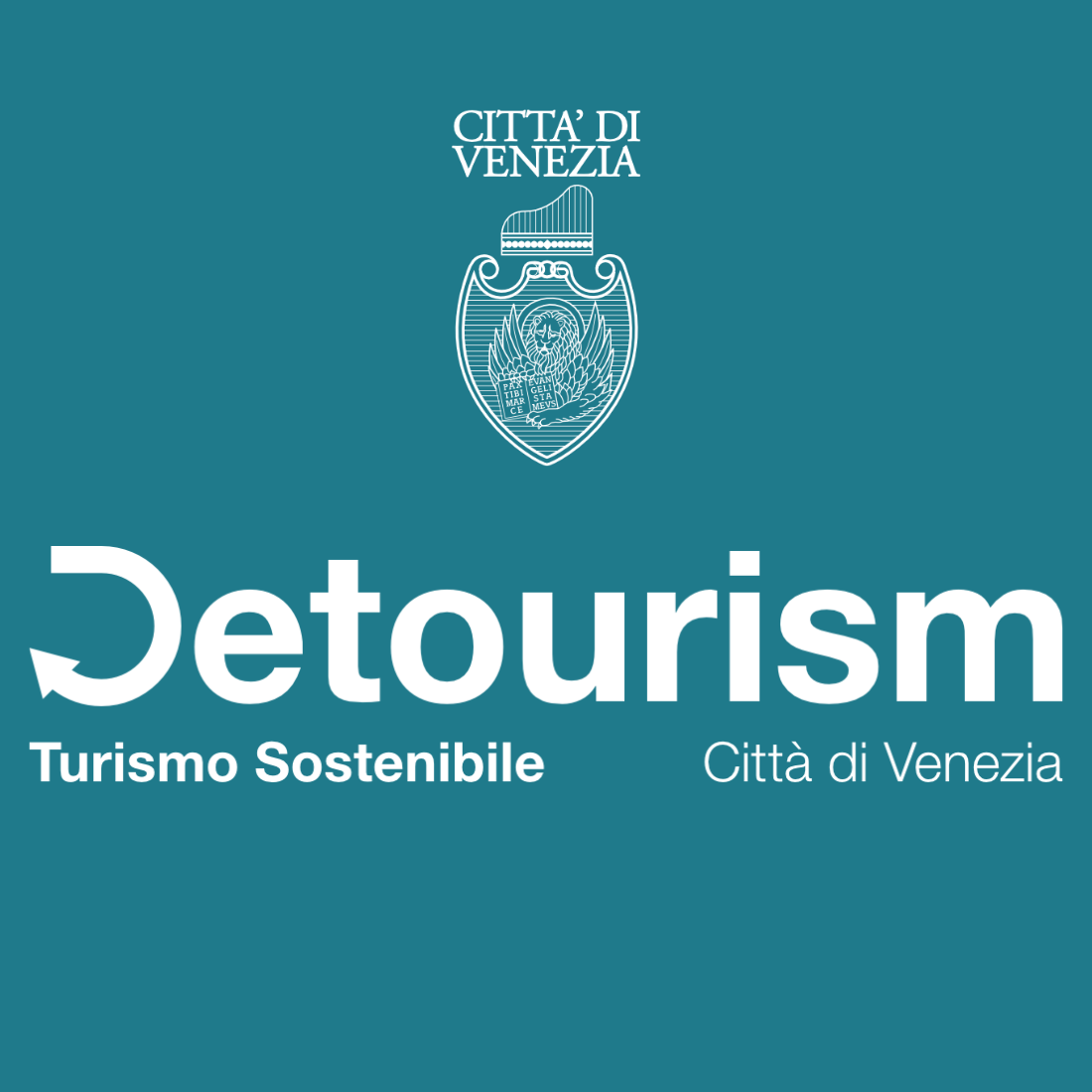 The DETOURISM campaign run by the Tourism Department of the City of Venice promotes slow and sustainable tourism, encouraging travellers to go beyond the usual tourist sights, stumble upon unique experiences and see Venice with new eyes.
The DETOURISM campaign run by the Tourism Department of the City of Venice promotes slow and sustainable tourism, encouraging travellers to go beyond the usual tourist sights, stumble upon unique experiences and see Venice with new eyes.
#Detourism suggests authentic experiences, out-of-the-ordinary places and itineraries not only in the city centre of Venice, but also on the lagoon islands and mainland.
These sustainable itineraries lead to unusual glimpses of the city; buildings, gardens, churches and museums unknown to the majority; historic boroughs on the islands, ancient fortresses, natural areas and bicycles paths on the mainland.
The Detourism web-magazine suggests travel ideas to explore an unknown and secret Venice, while the Detourism newsletter collects monthly suggestions on visiting unusual art exhibitions and events. View the newsletter archive



